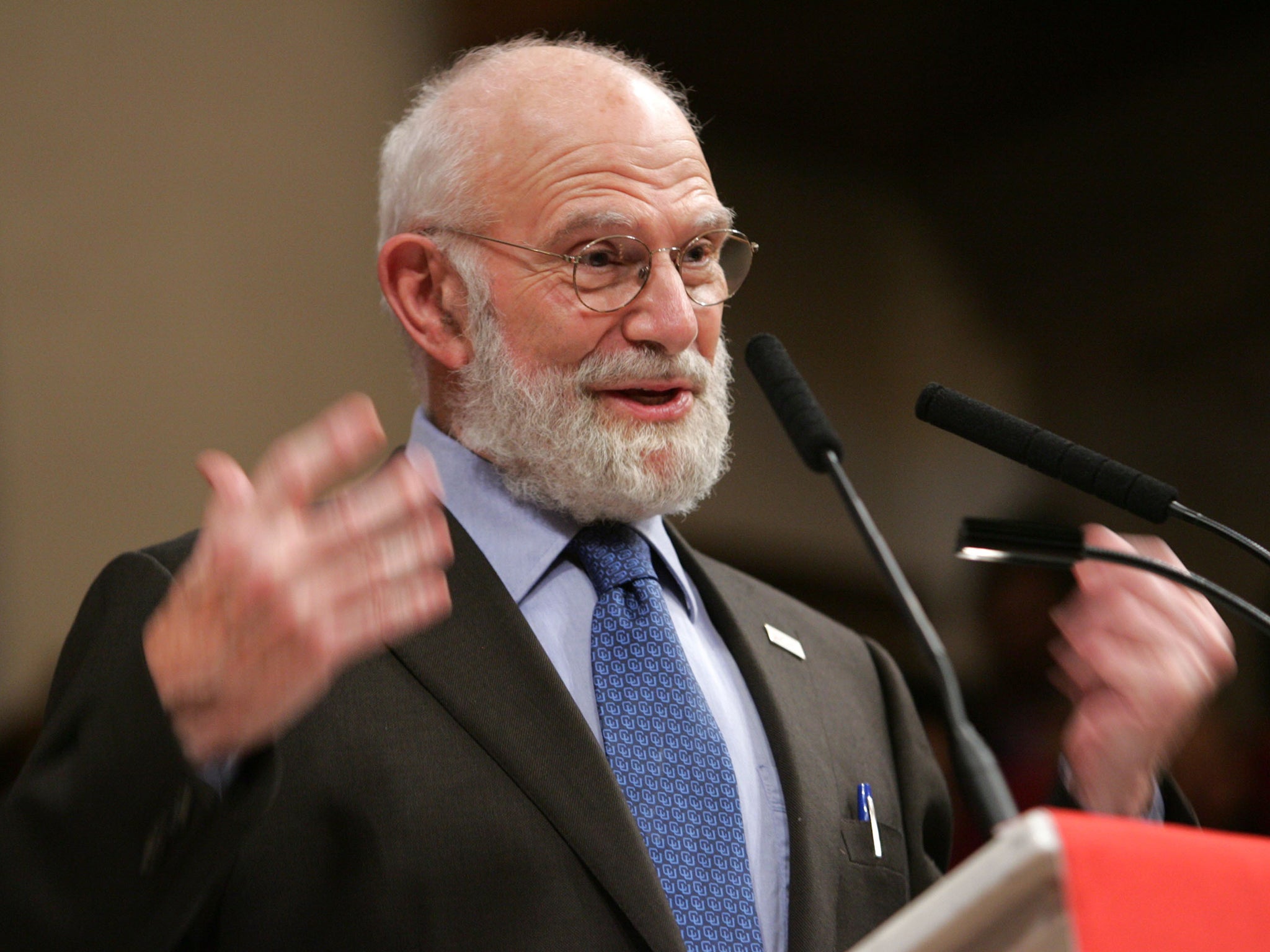Oliver Sacks announces he has terminal cancer
British neurologist and author says his 'luck has run out'

Your support helps us to tell the story
From reproductive rights to climate change to Big Tech, The Independent is on the ground when the story is developing. Whether it's investigating the financials of Elon Musk's pro-Trump PAC or producing our latest documentary, 'The A Word', which shines a light on the American women fighting for reproductive rights, we know how important it is to parse out the facts from the messaging.
At such a critical moment in US history, we need reporters on the ground. Your donation allows us to keep sending journalists to speak to both sides of the story.
The Independent is trusted by Americans across the entire political spectrum. And unlike many other quality news outlets, we choose not to lock Americans out of our reporting and analysis with paywalls. We believe quality journalism should be available to everyone, paid for by those who can afford it.
Your support makes all the difference.Oliver Sacks, the British neurologist and author, announced today that he has terminal cancer, writing of his determination to enjoy his remaining days and to focus on “myself, my work and my friends”.
Professor Sacks, 81, said that the eye tumour he had successfully treated almost a decade ago, but which left him blind in one eye, had metastasised spreading to the liver. Until recently he was still swimming a mile a day and felt in good health.
“But my luck has run out,” he wrote in the New York Times. “A few weeks ago I learned that I have multiple metastases in the liver. Nine years ago it was discovered that I had a rare tumor of the eye, an ocular melanoma. Although the radiation and lasering to remove the tumor ultimately left me blind in that eye, only in very rare cases do such tumors metastasize. I am among the unlucky two percent.”
Professor Sacks, whose most famous work includes The Man Who Mistook His Wife for a Hat and Awakenings, his 1973 memoir which was fictionalised and turned into an Oscar-nominated film starring Robin Williams and Robert De Niro, said the cancer occupied a third of his liver.
He wrote: “It is up to me now to choose how to live out the months that remain to me. I have to live in the richest, deepest, most productive way I can. I feel a sudden clear focus and perspective. There is no time for anything inessential.”
Over the last 15 years, when most people would be enjoying a quiet retirement, Professor Sacks has been as productive as ever publishing five books. His autobiography is due to be released in the spring and “several other books” are nearly finished, the Professor of Neurology at New York University School of Medicine said.
He never married and in past interviews said he was celibate, something he attributed to shyness which he called a “disease”. After graduating from Queen’s College, Oxford, in the 1950s, he left England and settled in the United States, via Canada.
Although best known for writing about his experiences with neurological patients in publications such as The New Yorker and The London Review of Books, Professor Sacks said the diagnosis meant he would be putting other passions - politics and arguments about global warming – to one side.
“This is not indifference but detachment — I still care deeply about the Middle East, about global warming, about growing inequality, but these are no longer my business; they belong to the future,” he wrote.
His article was warmly received albeit with many people, including Professor Alice Roberts, expressing their sadness at the news. Canadian broadcaster Matt Galloway said: “Oliver Sacks, eloquent as ever, on living, and learning that he’s dying.”
Having taken inspiration from David Hume, one of his favourite philosophers, Professor Sacks said he felt “intensely alive” and described his life as “an enormous privilege and adventure”.
He wrote: “Over the last few days, I have been able to see my life as from a great altitude, as a sort of landscape, and with a deepening sense of the connection of all its parts. This does not mean I am finished with life.
“On the contrary, I feel intensely alive, and I want and hope in the time that remains to deepen my friendships, to say farewell to those I love, to write more, to travel if I have the strength, to achieve new levels of understanding and insight.”
Subscribe to Independent Premium to bookmark this article
Want to bookmark your favourite articles and stories to read or reference later? Start your Independent Premium subscription today.
Join our commenting forum
Join thought-provoking conversations, follow other Independent readers and see their replies
Comments